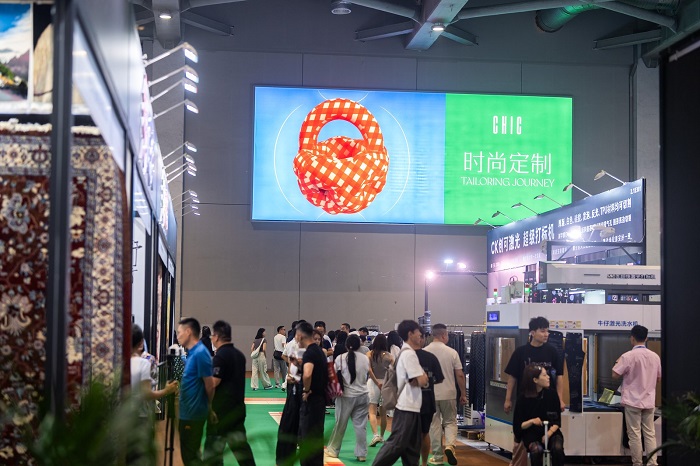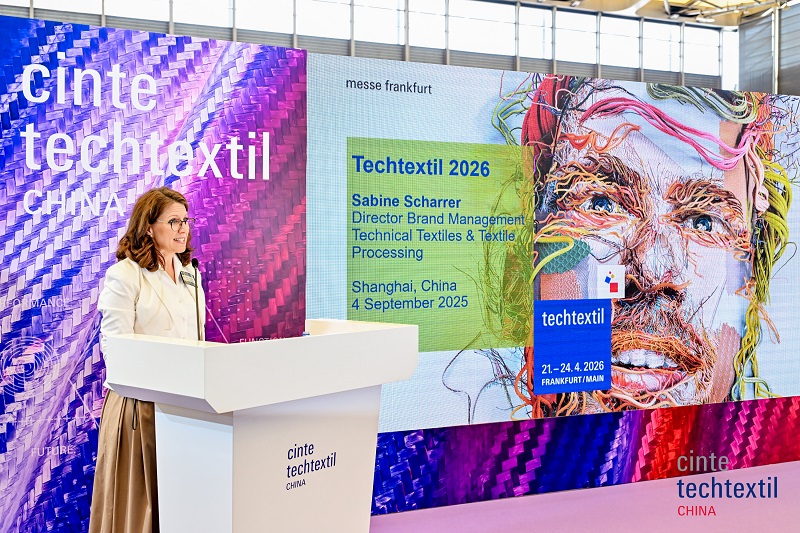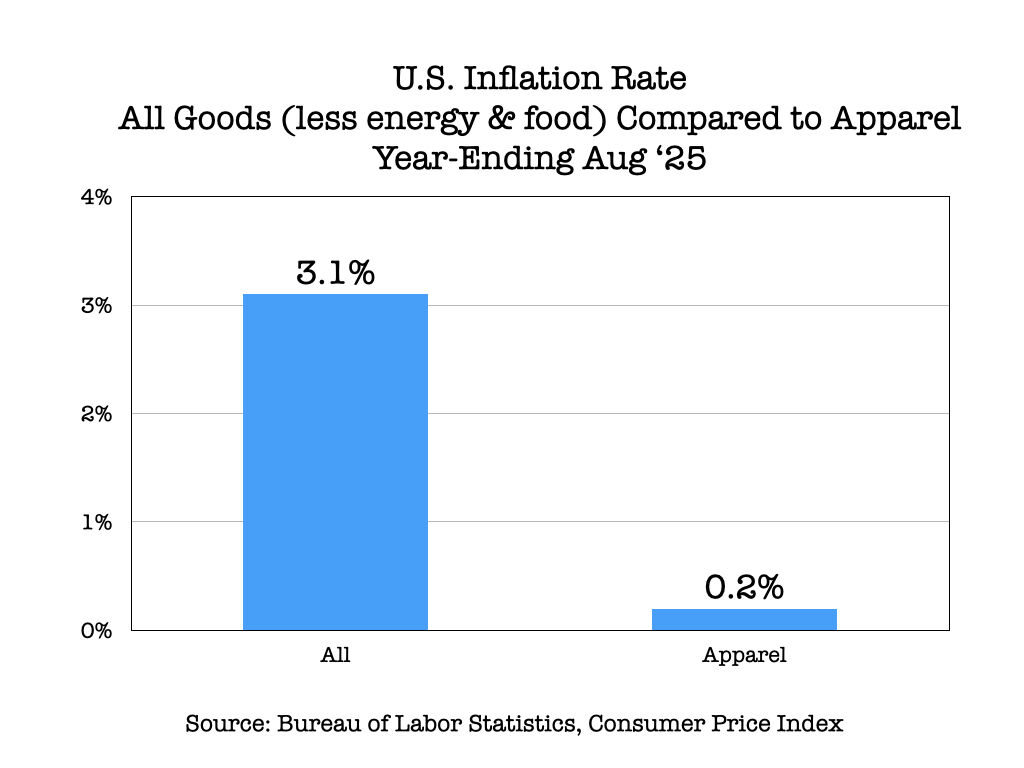FW
For the first quarter, Vietnam’s textile and garment exports are up 13.35 per cent compared to the same period of 2017. The worth of apparels shipped abroad rose 12.49 per cent year on year. Exports to key markets like the US, the EU, the Republic of Korea, China, Asean, and members of the Comprehensive and Progressive Trans-Pacific Partnership (CPTPP) enjoyed strong growth.
In 2017, the industry gained year-on-year increase of 10.23 per cent in export revenue, higher than its target set at the beginning of the year. Textile and garment firms in Vietnam have received enough orders until the end of the second quarter of 2018. Some even have orders through the third quarter. Many companies have been working to diversify export markets. Apart from key markets like the US, the EU, Japan and the Republic of Korea, they are also stepping up exports to China, Russia and Cambodia.
In future Vietnamese companies will push ahead with trade promotion programs, specialised training, and experience sharing. They will also encourage the application of smart production models to help businesses boost sustainable development. Vietnam hopes the CPTPP will enable it to boost exports to major markets such as Japan, Australia, Canada and Mexico.
New York Denim Days will take place from September 22 to 23. Spearheaded by true denim insiders, the festival connects denim professionals, designers and brands with denim consumers.
Denim lovers from across the spectrum -- fashionistas searching for the perfect pair of jeans, fade junkies looking to compare notes on raw denim, purists on the hunt for handmade indigo items, and designers shopping for Americana inspiration - will find the largest selection of indigo available at one event. Food, live music and art will round out the festival experience.
Plans include events with retail partners throughout the city. The show will have a mix of denim heads, the best brands and retailers and the most forward fashion. It will feature the who’s who of denim trade, from top designers to creatives and executives on the cusp of what's next in the denim industry.
New York Denim Days is organized by Kingpins, the global denim sourcing trade show. Last year, Kingpins brought Denim Days to New York believing the concept would resonate with the New York denim scene. This year the event will be put more spotlight on the jeans industry. Following the event, Denim Days will return to its original home in Amsterdam from October 22 to 28.
To develop an institutional connection between the fashion institutes of Pakistan and Saudi Arabia, the Trade Development Authority of Pakistan (TDAP) plans to tap Saudi’s high-end fashion market. TDAP’s commercial section intends to arrange a textile show of high-end made-ups and fashion apparel in Jeddah with two major stakeholders from Pakistan, including Chenab Group and Pakistan Institute of Fashion Design (PIFD) and counterpart in Jeddah, including Dar ul Hikma University and Danube Supermarket.
As per the plan fashion institutes of the two countries would introduce exchange programmes for teachers and students. By 2022, Saudi Arabia’s fashion market is expected to grow at an annual growth rate of 12.7 per cent to $3.085 billion. It had always been a lucrative market for fashion entrepreneurs. On the other hand the market’s largest segment apparel is expected to have a market volume of $1.065 billion by the end of 2018.
Saudi Arabia is a late competitor in the regional fashion scene where other Gulf countries such as the UAE have made a mark. Dubai has also established a free zone for fashion and design companies to buoy the growth of the industry.
An exhibition of all such products would be organised in Saudi Arabia, while the TDAP’s Commercial Section Jeddah would continue its coordination on the proposal for institutional linkages between the leading academic institutions of textiles in Pakistan and Saudi Arabia.
PVH will work with the World Wildlife Fund (WWF) to improve water quality in Ethiopia, India, Vietnam and China. PVH Corp’s brand Tommy Hilfiger, began working with the WWF in 2015 in China and Vietnam. PVH’s other brands, Van Heusen, Izod and Arrow, will work in Ethiopia while Calvin Klein sources in India will work to improve water quality in the Cauvery community in South India, a region known for heavy textile production.
The WWF partnership is part of PVH’s wider commitment to sustainability through corporate responsibility. PVH is one of the world’s largest global apparel companies. PVH operates in 40 countries and reports revenues of around nine billion dollars annually.
Access to safe water is a human right essential for communities to thrive. Water is used at every stage of the product lifecycle. As major trends like urbanization, population growth and climate change exacerbate existing water issues, water is not only an urgent environmental issue but also a risk to business.
Water pollution is defined as the presence in groundwater of toxic chemicals and biological agents that exceed what is naturally found in the water and may pose a threat to human health and/or the environment. Additionally, water pollution may consist of chemicals introduced into the water bodies as a result of various human activities. Any amount of those chemicals pollutes the water, regardless of the harm they may pose to human health and the environment.
With growing trade wars with China, American garment importers are looking for new sourcing destinations and Sri Lanka hopes to benefit from this. Sri Lankan apparel manufacturers, some of whom are considered the world’s in terms of quality and technology utilization, have extensive operations in South and Southeast Asia, potentially allowing Sri Lankan firms to capitalize on the opportunity to a great degree.
The US currently sources one third of its apparel imports from China, and just 2.4 per cent from Sri Lanka. However, Sri Lanka doesn’t have the economies of scale that China has and can’t deliver the size of orders. So, the country will produce partial orders, around 20 per cent of regular order sizes, while other countries like Bangladesh and Vietnam which have cheaper costs will produce the rest.
Some Sri Lankan apparel exporters have already been approached by top US clothing buyers to partially manufacture some of the orders currently being serviced by China. The impact from the US-China trade war would most likely be reflected in Sri Lanka’s export figures in another four to five months’ time. However, the hurdle Sri Lankan apparel companies would have to overcome would be the acute labor shortage in the industry.
US President Donald Trump is willing to explore re-entering the Trans-Pacific partnership trade deal, while emphasizing that Washington should receive the original terms. Toshimitsu Motegi, Japan's minister in charge of TPP feels President Trump is correctly appraising the significance and effects of the TPP, it's something that would want to welcome. However, he added that the 11 participating countries share the thinking that it would be extremely difficult to take out part of the TPP and renegotiate or change it. Japan wants to ascertain Trump's thoughts on trade policy through a summit between the US leader and Prime Minister Shinzo Abe in Florida next week. Trump directed US Trade Representative Robert Lighthizer and Larry Kudlow, director of the National Economic Council, to look into rejoining the pact. The US withdrawal from the TPP shortly after Trump's inauguration last year made Japan the largest of the 11 Pacific Rim economies left in the deal. Those countries signed a new version last month that had been revised to account for the US absence. Finance Minister Taro Aso suggested that Trump's shift on the pact should be approached with caution as Trump can be temperamental and might say something different the next day. The shift comes amongst a developing trade dispute between the United States and China, which did not take part in the TPP.The 10 other TPP members are Australia, Brunei, Canada, Chile, Malaysia, Mexico, New Zealand, Peru, Singapore and Vietnam.
Turkey’s textile technology show, ITM 2018 ended in Turkey yesterday, the four-day exhibition from April 14 to 17 got a huge response. It hosted companies that operate in various sub-sectors of the industry, ranging from weaving to knitting, digital printing, dyeing and finishing.
This edition hosted 1,050 exhibitors and representatives from 45 countries and around 50,000 visitors. Many Turkish textiles companies were eager to invest in new equipment and learn about new technologies.
Groz- Beckert, a leading supplier of industrial machine needles, showcased its products and services covering knitting, weaving, carding and nonwovens. The company emphasised on the interaction of needles and system parts in the field of knitted products. Transparent knitting and flat knitting machines provided visitors with unique information about the interaction of all components. Four acrylic glass machines were exhibited at the stand.
Karl Mayer exhibited warp knitting and warp preparation technologies. The HKS 3-M model became a focus of attention with its tulle curtain and embroidery ability. In addition, examples of high-speed tricot, jacquard and Raschel machines, made from outerwear fabrics and shoe-faced fabrics, were exhibited.
German circular knitting machine builder Terrot exhibited a number of new circular knitting machines, including a new addition to its fine rib and interlock family.
Cordura, Tencel and Artistic Milliners are together debuting a new SuperCharged Noir performance denim collection. The mission is to create a powerful, dense dark denim with excellent color-fastness and long-lasting vibrancy without sacrificing the durable DNA that defines the Cordura brand.
The collection brings together Cordura’s latest state-of-the art Invista nylon 6,6 Black SDN fiber technology, which has a new dimension in stay true color and enhanced strength and abrasion resistance, with Tencel fibers and Artistic Milliners, which complement those attributes with added color fastness, softness, sustainability and stretch.
The collection is infused with color-fastness locked in at the fiber level for excellent shade consistency and long-lasting vibrancy. Tencel Modal fibers with Eco Color technology make up 60 per cent of the collection's fabric composition. Tencel Modal fibers are mainly manufactured from the renewable source of raw material and beech wood, sourced from sustainable forests in Austria and neighboring countries. The collection also delivers Performance Stretch in order to stand up to the challenges of an active lifestyle, combining durability and flexible comfort into one.
Cordura is a trademark of Invista, one of the world’s largest integrated polymer, intermediates and fibers businesses. Artistic Milliners is a fully vertically integrated textile set-up providing high-end customers with premium quality denim fabrics and garments.
The Accord on Fire and Building Safety in Bangladesh (the Accord) was signed on May 15th 2013. It is a five year independent, legally binding agreement between global brands and retailers and trade unions designed to build a safe and healthy Bangladeshi Ready Made Garment (RMG) Industry. A safety programme, where over 200 brands participate, has since 2013 been working to make those factories into safe workplaces. This programme however ends in May and only a quarter of the brands that were part of the programme have signaled they will stay involved.
More than over 140 brands had signed the five year programme. Convinced that all garment workers in Bangladesh should have the right to not fear for their lives in their workplace, Clean Clothes Campaign is calling upon all brands sourcing from Bangladesh that have not already done so to sign the 2018 Accord. Clean Clothes Campaign and allies are starting a week of action, urging garment brands to take responsibility to make factories in Bangladesh safe by signing the 2018 Transition Accord.
Moroccan textile enterprises and European buyers are exploring how to mitigate climate risk with the aim of initiating joint actions and establishing climate resilient value chains. Buyers participated in sensitization workshops and took part in a selection of customized coaching sessions together with their respective suppliers at a session held in Morocco on April 10 and 11.
Adapting to climate change is a serious challenge for governments, businesses and communities. Micro, small and medium-sized enterprises, particularly in developing countries, are seeing their operations face volatility due to climate change related issues such as increased prices for raw materials, energy and water, and also degraded transport routes and processing facilities as a result of heavy rainfalls or drought.
As climate change affects all stakeholders along the supply chain, partnership between suppliers and buyers is important in formulating effective and multidimensional responses.
Along with the Moroccan textile sector, the project, aims at strengthening competitiveness through climate resilience in international value chains, focused on the Kenyan agri-food sector. The interventions are aimed at improving the risk management of Moroccan textile suppliers, and Kenyan coffee and tea suppliers, supporting companies to integrate climate-change considerations in their risk analysis and helping them to create climate adaptation plans.












